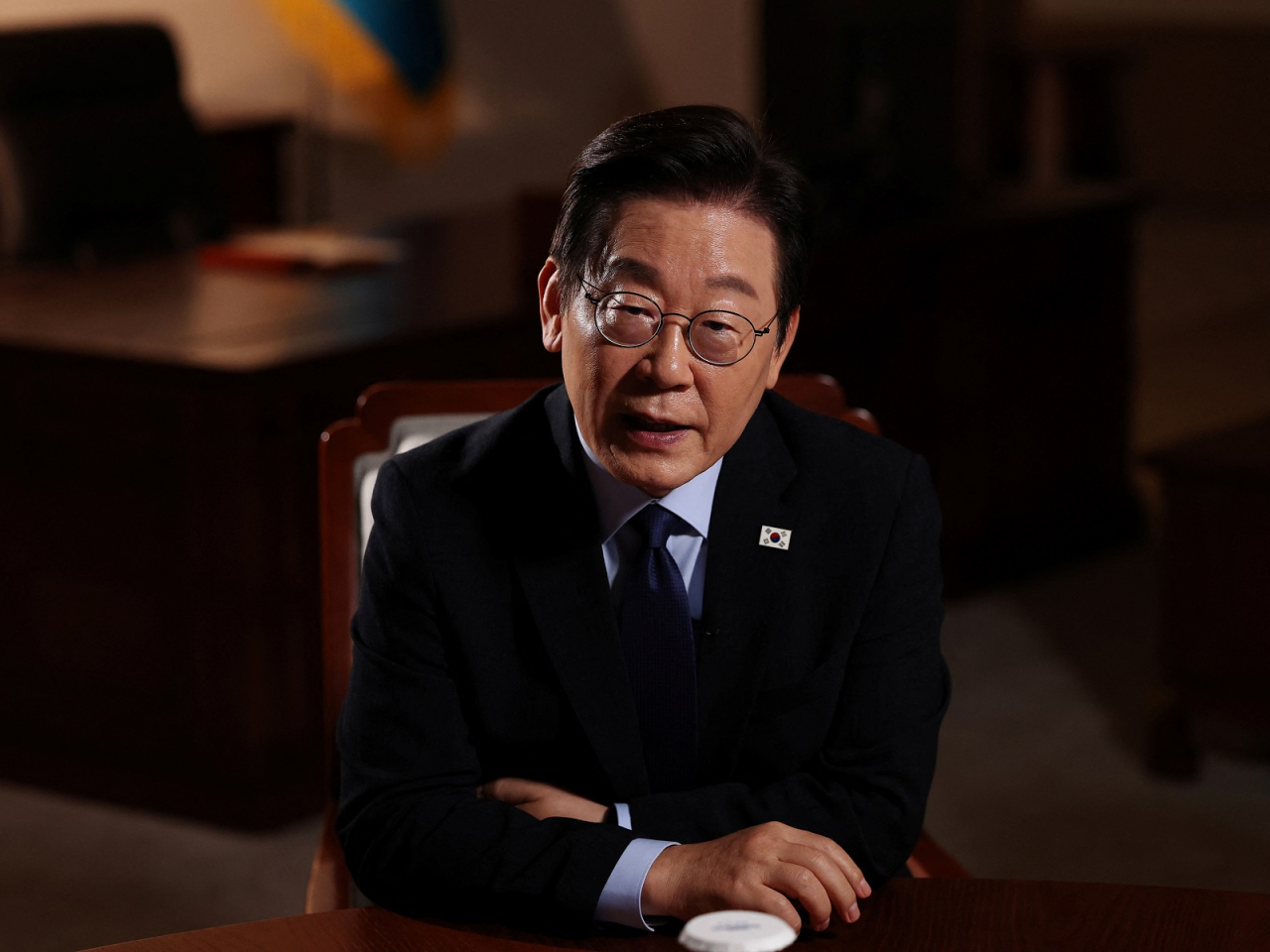South Korea's economy could fall into crisis rivalling its 1997 meltdown if the government accepts current US demands in stalled trade talks without safeguards, President Lee Jae Myung told Reuters.
Seoul and Washington verbally agreed to a trade deal in July in which the US would lower President Donald Trump's tariffs on South Korean goods in exchange for US$350 billion in investment from South Korea, among other measures.
They have yet to put the agreement to paper because of disputes over how the investments would be handled, Lee said.
"Without a currency swap, if we were to withdraw US$350 billion in the manner that the US is demanding and to invest this all in cash in the US, South Korea would face a situation as it had in the 1997 financial crisis," he said.
In an interview in his office on Friday, Lee also spoke about a huge US immigration raid that detained hundreds of Koreans.
But trade and defence talks with the US, South Korea's military ally and a top economic partner, are overshadowing a trip Lee makes from Monday to New York, where he will address the United Nations General Assembly and be the first South Korean president to chair a meeting of the Security Council.
Lee, a liberal, took office in a June snap election after his conservative predecessor, Yoon Suk Yeol, was removed from office and jailed for briefly imposing martial law.
Lee has sought to calm the country and its economy and said he plans to use his US visit to tell the world that "democratic Korea is back".
Lee met Trump for their first summit in August, saying he had built a strong personal tie with the US leader, despite not agreeing on a joint statement or concrete announcement.
This month Trump's administration rocked South Korea with the arrest of more than 300 South Korean workers at a Hyundai Motor battery plant in Georgia, with federal officials accusing them of immigration violations.
Lee said South Koreans were naturally angered by the "harsh" treatment of the workers – the Trump administration published images of them in shackles – and has warned it could make companies wary of investing in the United States.
But he said the raid would not undermine the bilateral alliance, praising Trump for offering to let the workers stay. Lee said he did not believe it was directed by Trump but was the result of overzealous law enforcement.
"I do not believe this was intentional, and the US has apologised for this incident, and we have agreed to seek reasonable measures in this regard and we are working on them," he said.
Lee's office says there is no plan for him to meet Trump in New York and that the trade talks are not on the visit's agenda.
Commerce Secretary Howard Lutnick has said South Korea should follow Japan's deal with the United States. He said Seoul either needs to accept the deal or pay the tariffs, using the Trump administration's depiction of foreign governments paying the levies, which are instead paid by US importers.
Lee, asked if he would walk away from the deal, said: "I believe that between blood allies, we will be able to maintain the minimum amount of rationality."
South Korea has proposed a foreign exchange swap line with the US to reduce the shock of the investments on the local market for the won currency.
He said South Korea is different from Japan, which struck a trade deal with the US in July.
Tokyo has more than double South Korea's US$410 billion foreign exchange reserves, an international currency in the yen and a swap line with the United States, Lee said.
Seoul and Washington have said in writing that any investment projects must be commercially viable, but working out the details is proving difficult, he said.
"Reaching detailed agreements that guarantee commercial reasonableness is now the central task – yet it also remains the biggest obstacle," Lee said.
Proposals during working level talks provide no assurance of commercial viability, making it hard to bridge the gap, he said.
Trump says the investments will be "selected" by him and controlled by the US, meaning Washington would have discretion over where the money will be invested.
But Lee policy adviser Kim Yong-beom said in July that South Korea had added a safety mechanism to reduce financing risk, including supporting commercially feasible projects rather than providing unconditional financial support. (Reuters)





